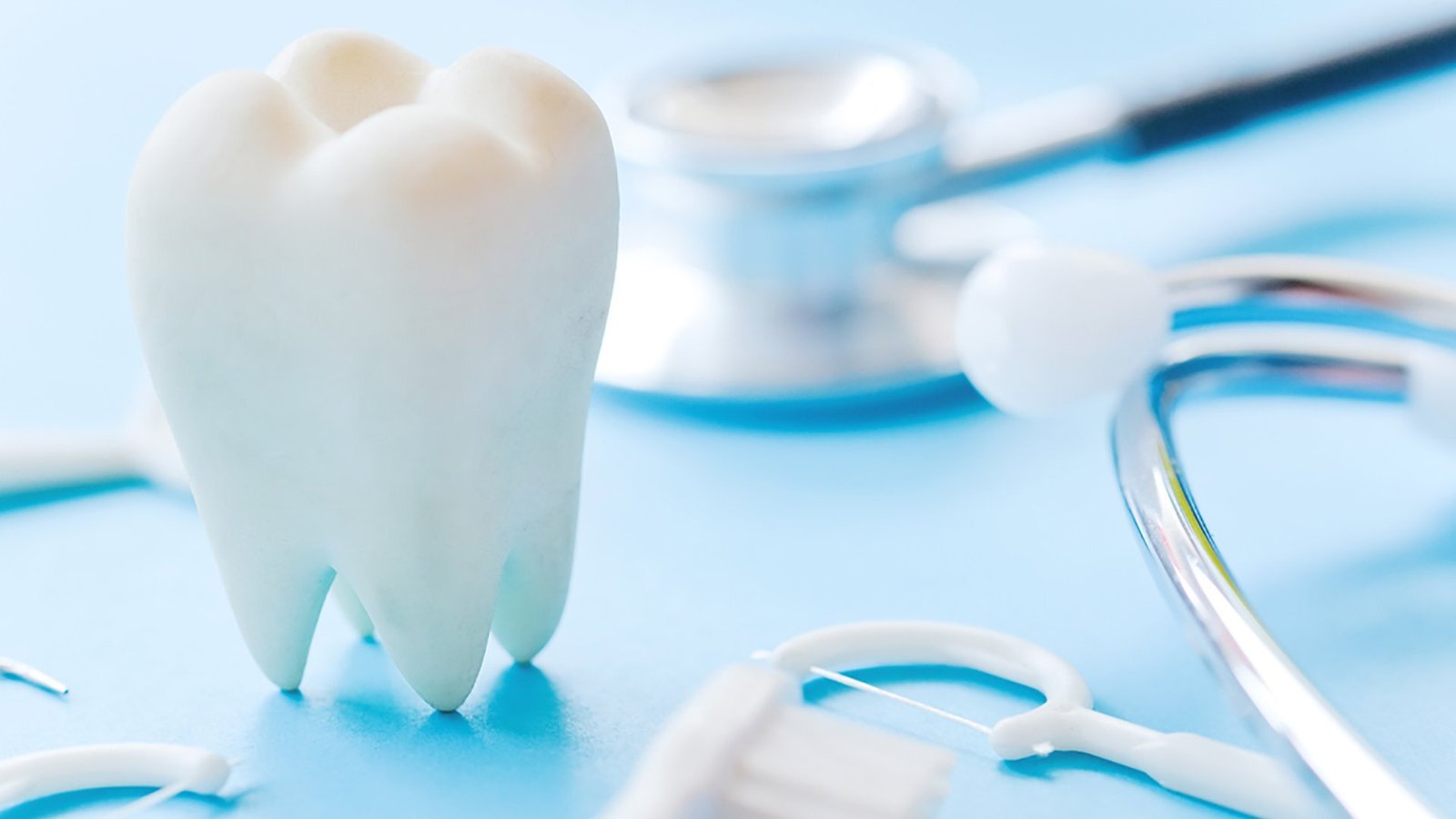Following a routine of brushing and flossing is a good oral hygiene practice. But even after regular cleaning, the buildup of plaque is inevitable. If left uncleaned, it hardens into tartar and results in causing infection to the gums. How can you get your gums treated then? It’s with dental periodontal maintenance.
You might be thinking, is regular cleaning not enough? Get your answer here in this article. Also, learn the key tips about how dental periodontal maintenance keeps your gums healthy and maintains your perfect smile.
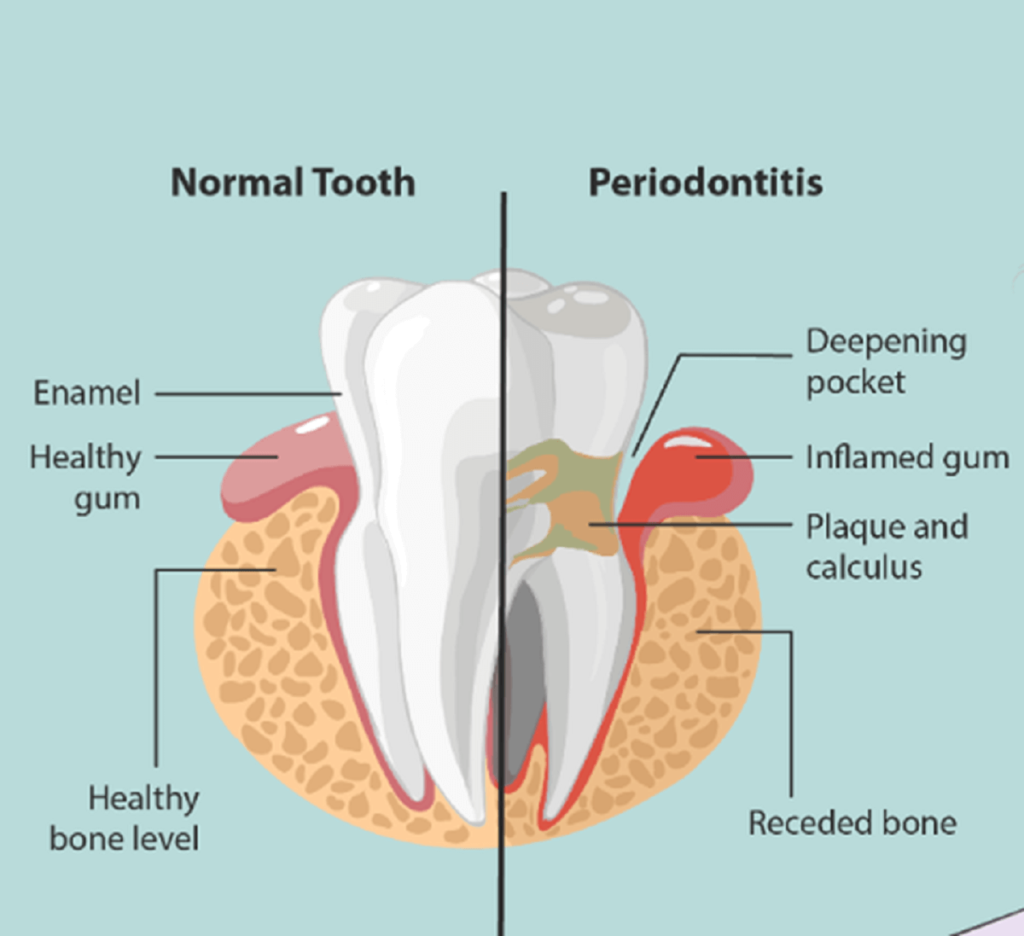
- Key Aspects of Periodontal Maintenance
- Periodontal Health Tips Suggested By Experts
- Dental Periodontal Maintenance Tips for Expecting Mothers
- Key Insight for Dental Periodontal Maintenance Treatment Success
- When to Seek Professional Help for Periodontal Maintenance?
- Essential Facts About Dental Periodontal Maintenance
- FAQ’s
Key Aspects of Periodontal Maintenance
Scaling and Root Planing:
Plaque and tartar is present not only above but also below the gumline. Its removal is necessary and it’s done with scaling and root planing. Not only gumline, but tooth roots are also cleaned in this process.
Gum Pocket Assessment:
In periodontal maintenance, the gum pockets are also measured by your dentist or hygienist. Using the antiseptic medications, they will irrigate the gum pockets.
Monitoring and Follow-up:
Regular follow-up appointments are necessary to monitor your gum health. It is done in periodontal maintenance and this ensures that the disease is under control.
Prevention:
Regular removal of plaque and tartar is vital and periodontal maintenance does it. Gum inflammation is also addressed and all this prevents the progression of gum disease.
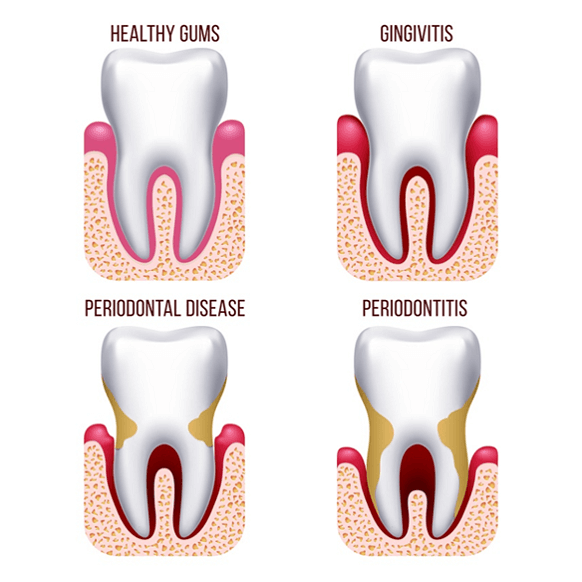
Periodontal Health Tips Suggested By Experts
Here are a few tips suggested by many industrial experts that can help achieve oral hygiene.
1. Brush and Floss Teeth Twice Daily
Plaque-free teeth prevent any bacteria or infection from damaging your teeth and gums. But how can you achieve it? This can be done easily by keeping your teeth clear of any hidden food particles.
To do so, brush and floss your teeth gently and thoroughly daily. Doing it two times daily – in the morning and also at bedtime will suffice the requirement.
2. Take Healthy Diet
Sugary and starchy diets welcome gum diseases more often. So, why not have a diet rich in whole grains, fruits, and vegetables? Opting for healthy options becomes more necessary, especially for periodontal maintenance after deep cleaning.
3. Use Mouthwash
Look for an antiseptic mouthwash to keep your mouth bacteria-free. However, it is vital to take the dentist’s advice before using any mouthwash.
Also, do not keep changing the mouthwash frequently. It can damage your teeth. Use only the one that your dentist recommends. It will keep your teeth and gums bacteria-free.
4. Avoid Tobacco and Stay Stress-free
Tobacco consumption is life threatening and stress also impacts a lot on your body. Both in your lifestyle increase the risk of gum diseases. If you avoid using cigarettes or chewing tobacco, it would be a boon for your gums and teeth.
Also, manage your stress levels and don’t let them hamper your periodontal health. Regular exercise will also help in developing good eating habits and managing stress.
5. Dental Checkups
For dental periodontal maintenance, keeping your dental checkup visits regular is vital. Your dentists will check your oral health. They will curb the problem, if any, at the initial stage before letting it become complicated. Else there will be plaque formation which will further produce toxins.
This will irritate your gums and there will be swelling and bleeding of the gums. If you keep it untreated, it will separate your teeth from gums and there will be formation of pockets.
Here, if you keep delaying the checkup, the periodontal disease will keep deteriorating your gum tissue and also the bone, which further results in tooth loss. So periodical dental checkup is the key to healthy teeth and gums.
Dental Periodontal Maintenance Tips for Expecting Mothers
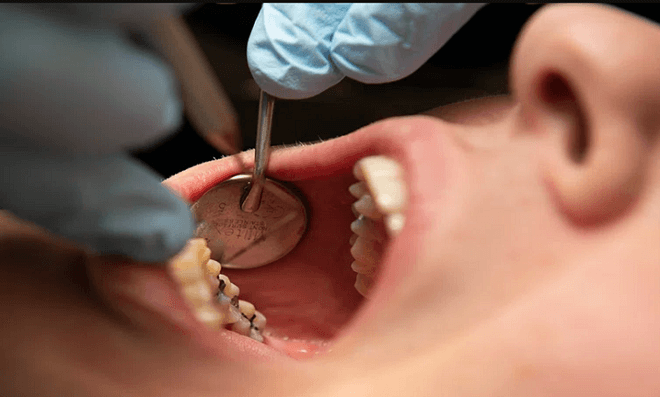
The body of an expectant mother goes through lots of hormonal changes. In this process, the gums also receive increased blood flow and become more prone to accumulation of plaque. The possibility of catching gum disease increases.
However, if you have any periodontal issues before, it can worsen during pregnancy. You now know what is periodontal maintenance. Now let’s see the periodontal complications associated with pregnancy and how you can go with dental periodontal maintenance during pregnancy.
Complications in Pregnancy Because of Periodontal Disease
Here are some complications that expecting mothers experience if having periodontal disease:
- Premature birth of baby
- Low birth weight of baby
- Gestational diabetes
- Preeclampsia
Tips for Dental Periodontal Maintenance in Pregnancy
Now let’s see how to do dental periodontal maintenance in pregnancy:
- You can visit the dentist in the second trimester. It is considered safe for dental checkup. Schedule routine cleaning visits for your teeth. Your dentist will effectively do it with Aidite dental machines.
- Share the status of your pregnancy with the dentist to get the right support for your oral care.
- Dentist’s can also recommend antibacterial rinses. It will support your gum health by reducing bacteria.
- Get a balanced and nutritious diet rich in minerals and vitamins to support your gum health.
- Brushing and flossing teeth twice a day is recommended.
- Bleeding gums gives an alarm to the start of periodontal disease.
There is no threat to your pregnancy during periodontal maintenance and treatment. But only when it’s done by a professional and that too at the right time of pregnancy. So, don’t delay and develop more complications.
Key Insight for Dental Periodontal Maintenance Treatment Success
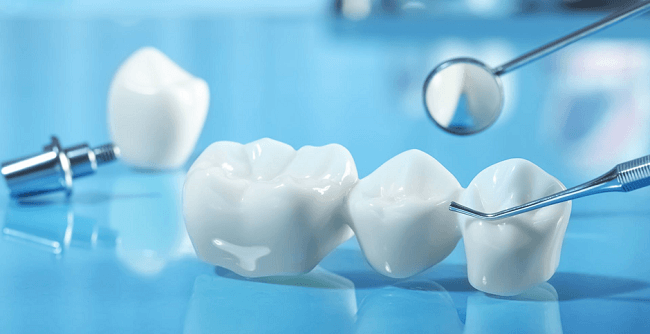
Dental periodontal maintenance prevents any further damage to your teeth, bones, and tissue by cleaning the pockets. You will get a successful treatment with Aidite dental equipment if you get your sitting on time and follow good oral hygiene care.
If the periodontics has not gone to an advanced stage then it can be cured with non-surgical treatments:
- Scaling
- Root planing
- Antibiotics
However, if it has reached an advanced stage then you might need to get surgical treatment. So, it would be best if you take your dental visits on time and follow the tips for dental periodontal maintenance.
This will avoid any risk of dental surgery later. You might be thinking how often do you need periodontal maintenance? You can expect it every 3-4 months. It depends on your dental health.
When to Seek Professional Help for Periodontal Maintenance?
Do not delay professional help when you experience any of these symptoms:
- Bleeding gums
- Tender gums
- Swollen gums
- Receding gums
- Loose teeth
- Increasing space between teeth
- Bad breath
- Painful chewing
- Pus between gums and teeth
Get a quick examination if you feel any of these symptoms. With the help of Aidite dental tools, your dentist will look for any pockets and go for deep cleaning to prevent the spread of any further infection.
If you have any doubts or you hear any myths about periodontal maintenance, the best is to get answers from professionals.
Essential Facts About Dental Periodontal Maintenance
Dental periodontal maintenance begins when a professional confirms the periodontal disease. Your teeth will get scaling and root planing, and only then maintenance sittings will start.
- Like regular cleaning, it removes tartar from your teeth, but it is more intense.
- If you ask, is periodontal maintenance a deep cleaning? Yes, it is. It is not a usual preventive cleaning, but it fights periodontal disease.
- Root planing and scaling are done in it to remove tartar from your teeth and gums too. Your dentist will clean the gums reaching the complete length of your tooth. The process includes reaching the spot where your teeth, gum, bone, and root meet.
- Every pocket in your teeth gums is deep cleaned after careful monitoring.
Closing Words
Good oral hygiene will keep teeth and gums healthy. Any lethargic approach will result in the formation of plaque, tartar, gum infections, and then periodontal disease if left untreated. Once you reach this stage and then go for treatment.
It becomes necessary for you to get dental periodontal maintenance appointments on time. Treatment done with Aidite dental equipment will help you curb the disease and strengthen your oral health.
We have discussed various tips above that will help you in your dental periodontal maintenance. Follow them to maintain your beautiful smile and enjoy a smooth eating experience.
FAQ’s
What is Periodontal Maintenance vs Regular Cleaning?
Regular cleaning done on healthy gums removes plaque and tartar buildup and prevents disease.
However, in periodontal maintenance, patients diagnosed with gum diseases will undergo intense cleaning of teeth. It is aimed at managing and controlling the infection and preventing any further complications.
Do I Need Periodontal Maintenance Forever?
First, tell us, have you ever been diagnosed or treated for gum disease? If the answer is yes, then yes you need to get dental periodontal maintenance forever. It might sound daunting to you.
However frequent appointments help in effectively managing symptoms. It also helps in keeping gums healthy and stable. Routine dental care not only prevents the possibility of re-occurrence of any gum problems but also keeps your oral health maintained.
Will Periodontal Disease Go Away?
If you fail to manage your gum tissues properly, this chronic infection can deteriorate your gum tissue further. It can even lead to the loss of bone that is supporting your teeth which further results in other health diseases. Heart disease, diabetes, and even heart stroke can be there due to poor oral health. So, regular maintenance is the key to good oral health and well-being after treatment. You can achieve it only with dental periodontal cleaning.



